Current Events in Historical Context
-
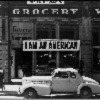 A Farewell to the Model Minority Myth
A Farewell to the Model Minority Myth
Shuko Tamao | May 6, 2021
In the wake of recent violence, historian Shuko Tamao reflects on how racism against Asian American and Pacific Islanders impacts students and faculty in academia. -
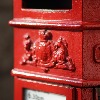 Remote Reflections
Remote Reflections
Claire C. Arnold | May 4, 2021
Researching the communication strategies of 19th-century British migrants helped one graduate student make sense of her experience during COVID. -
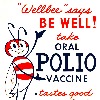 Vaccine Hesitancy Is a 21st-Century Phenomenon
Vaccine Hesitancy Is a 21st-Century Phenomenon
Gareth Millward | Apr 16, 2021
Since the 1940s, vaccination campaigns have been held to increasingly high, and difficult to meet, standards. -
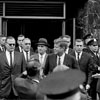 A Tale of Two Catholic Presidents
A Tale of Two Catholic Presidents
Francine Uenuma | Apr 2, 2021
Whereas JFK faced voters skeptical of him for merely being Catholic, Joe Biden must confront concerns about what kind of Catholic he is. -
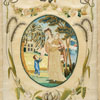 Meeting Need, Collecting Need
Meeting Need, Collecting Need
Amanda B. Moniz | Apr 1, 2021
The National Museum of American History's curator of the history of philanthropy reflects on her efforts to document food insecurity during the COVID pandemic. -
 Townhouse Notes
Townhouse Notes
Ashley E. Bowen | Feb 3, 2021
Historians offer context and nuance in times when those things are in short supply, often asking us to check our assumptions and refine our critiques. -
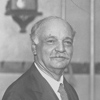 Why is Charles Curtis’s Legacy So Complicated?
Why is Charles Curtis’s Legacy So Complicated?
Kiara M. Vigil | Jan 19, 2021
Charles Curtis, a member of the Kaw Nation and the first person of color to serve as vice president, is... -
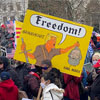 Vikings, Crusaders, Confederates
Vikings, Crusaders, Confederates
Matthew Gabriele | Jan 12, 2021
Why was there so much medieval imagery at the assault on the US Capitol? Historian Matthew Gabriele explains the Far... -
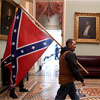 A Starting Point
A Starting Point
Kevin Boyle and James Grossman | Jan 11, 2021
The braided relationship between history and civics will make January 6, 2021, a central concern in classrooms and other educational... -
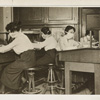 Clerks Wearing Masks
Clerks Wearing Masks
E. Thomas Ewing and Jeffrey S. Reznick | Dec 9, 2020
Analyzing data and photographs from the 1918 influenza epidemic increased students' historical empathy and improved their ability to think historically about COVID-19.
More Articles
